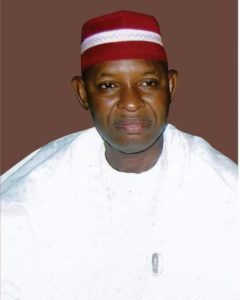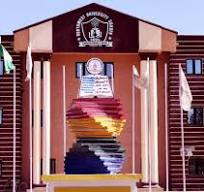
The Independent Corrupt Practices and Other Related Offences Commission (ICPC) has dragged about 2,000 corporate entities into the country’s tax net, the Chairman of the Commission, Prof. Bolaji Owasanoye, SAN, has revealed.
He made this known on Tuesday in Abuja while responding to questions from journalists at the end of a capacity building for ICPC investigators on investigating Illicit Financial Flows (IFFs) held at the corporate headquarters of the Commission.
Prof. Owasanoye disclosed that the 2,000 corporate entities were uncovered by investigations undertaken by the Commission, and their names have been forwarded to the Federal Inland Revenue Service (FIRS) for profiling.
“Some of these entities are not registered and do not pay tax while others are registered but still do not pay tax. The ICPC has been able to recover significant amount in taxes for the government,” he said.
Earlier in his welcome remarks, the ICPC Chairman stated that the capacity building programme would help investigators to track illicit financial flows, money laundering and other areas the government is losing revenue and recover such funds.
“The loss of revenue is a major challenge to developing countries, particularly Nigeria. The meeting is therefore designed to build the capacity of our investigators to enable them to trace the areas in which the government is losing money, look for the likely places people hide money, stop the illicit financial flows, and recover the funds.
“We are already working with the FIRS and getting a lot of tax evaders and defaulters into the nation’s tax net. One of the takeaways from here is the kind of question an investigator needs to ask in tracking IFFs and money laundering,” Prof. Owasanoye explained.
He stressed the need to widen the revenue base, improve tax collection, combat tax evasion and illicit financial flows as well as asset recovery to improve the country’s finances.
The Chairman of Inter-Agency Committee on Stopping IFFs from Nigeria, Dr. Adeyemi Dipeolu, assured that the committee was working assiduously to curb the menace from the country.
“We know the challenge and negative impact of IFFs in Nigeria and Africa. The Federal Government established the committee towards promoting financial transparency and accountability and in line with the recommendations of the findings of a high-level Africa Union Panel on Illicit Financial Flows (IFFs) led by the former South African President, Thabo Mbeki, include coordinating and tracking progress in stemming illicit financial flows from Nigeria.
“The Committee is establishing cooperation amongst relevant agencies in order to substantially reduce and eventually eliminate illicit financial flows from Nigeria, make recommendations to the Federal Government on required improvements in legislation, rules and processes for the purposes of tackling illicit financial flows from Nigeria amongst others.”
He advised African countries to build the capacity of their investigators in tracking illicit financial flows in order to curb annual loss of revenue.
The capacity building forum witnessed paper presentations by three resource persons including an Associate Fellow of Chatham House, Matthew Page; Prof. Melvin Ayogu of Emory University, and Matthew Gbonjubola of the Federal Inland Revenue Service.
In his paper presentation titled “IFFs through the Real Estate and Education Sectors: Implications for Investigators”, Matthew Page urged the investigators of the ICPC to pay attention to real estate and education sectors-linked illicit financial flows.
He noted that IFFs have provided opportunities for politically exposed persons (PEPs) in Nigeria to launder money through real estate and education sectors.
“Most of the properties held by Nigerian politicians in London and Dubai are held by proxies, family and shell companies. Over 800 properties worth over $400 million have been linked to Nigerian PEPs,” Page said.




Telegram中文版 是一款注重隐私和安全的消息应用,提供端到端加密聊天等功能。
Fine news for all us
Trademark new capsules in huge ecstasies – expanded well extra fierce climaxes!
not witnessed formerly – extremely current at health research investigation!
100% protected plus successful – likewise increased lust plus even raised sexual hardness!
Increase volume in own releases now right now!
Innovative latest pills to powerful orgasms – more intense as well as more forceful pleasures!
One-of-a-kind innovation – modern innovations within scientific studies!
Completely harmless along with very successful – improves arousal as well as upgrades physical firmness!
Increase your climax capacity instantly!
We’re available to rescue the situation — a expert team prepared to fix your plumbing issue and restore function in your home!
Our quick assistance aids in – decrease the requirement for pricey large-scale fixes later.
Discover our rapid and high-quality support – at once!
Personally comprehend how intimidating the situation strikes when moisture places the home together with family’s convenience toward peril.
Yet you remain never isolated.
We have been ready to protect yours residence together with that comfort from the household lifestyle, acting carefully as well as safely so that everything yourself adore stays undamaged.
The team acts immediately toward cease damage together with avert mildew, granting yourself relief belonging to consciousness.
Plus with this nonstop support, someone continuously possess a person beside yours company — ready toward aid you keep one’s loved ones protected as well as one’s property supplied via well-being.
Find peace in your home – Call: 8338561951